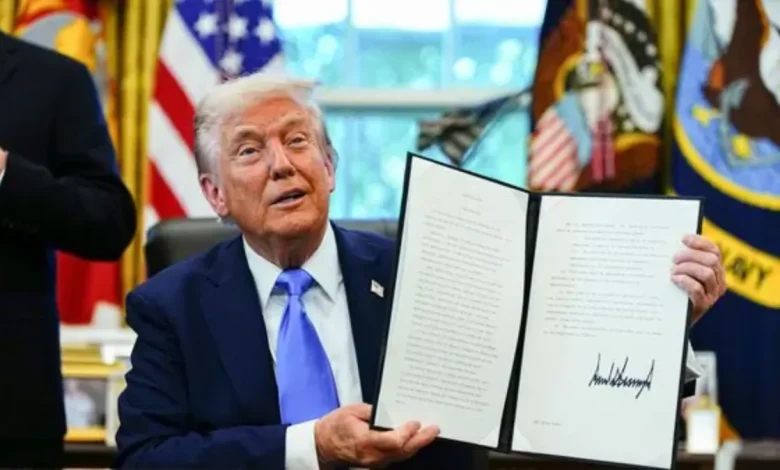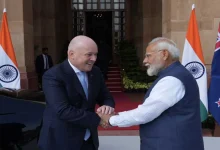H-1B $100,000 Entry Fee Explained: Who Pays, Who’s Exempt and What’s Still Unclear?

[By Our Correspondent Devansh Desai ]
The White House move to introduce a $100,000 entry fee on H-1B visas has triggered shock among Indian tech professionals and students the largest group using this pathway to enter the United States. The fee, effective midnight, September 21, applies to new applicants seeking to enter on an H-1B visa, but those already in the US extending or transferring their status are exempt.
Following uncertainty, the White House Rapid Response team clarified on X that the proclamation “does not apply to anyone who has a current visa” and is limited to future applicants in the February lottery who are outside the US. For those already holding valid H-1B visas, travel restrictions remain a grey area, even as officials insist the rule won’t affect re-entry.
Also read: Modi’s Stark Warning on Self-Reliance Echoes as Trump Surges H-1B Visa Costs to $100,000
What the proclamation says
A USCIS memorandum dated September 20 outlined that the fee “applies prospectively to petitions not yet filed and does not impact those with approved petitions or valid visas.” Still, lawyers in the US say the language leaves room for interpretation. “There’s a lot of confusion on how the government may enforce this,” Texas-based attorney Chand Parvathaneni told News Agencies. Houston attorney Rahul Reddy added that clarity will come only when travelers attempt entry: “It goes into effect at 12:01 am Sunday, and companies like Amazon and Microsoft have already warned employees not to travel.”
One-time fee or annual cost?
The uncertainty deepens on whether this is a one-time charge or yearly levy. While earlier drafts had mentioned an annual fee, the proclamation states the charge applies each time someone tries to enter the US. “It is a $100,000 annual payment tied to re-entry,” Parvathaneni said. Reddy also flagged lack of specifics, asking, “How are they going to collect this? From the Secretary of State? Directly from the H-1B beneficiary?”
No impact on extensions or status change inside US
The White House order does not apply to in-country H-1B transfers, extensions, or status changes. Both lawyers confirmed that F-1 students converting to H-1B within the US are safe from the fee. “As long as these changes happen inside the country, there won’t be an impact,” Parvathaneni explained. For F-1 students outside the US, however, the $100,000 charge will apply once they seek H-1B entry.
Also read: India Assessing Impact of U.S. H-1B Visa Fee Hikes, Says MEA
Exemptions and alternatives
The order does leave room for exemptions, though vaguely worded. Reddy said, “They may exempt individuals if there is ‘national interest’ for example, healthcare workers.” Some immigration experts also predict a shift in demand toward alternative visa categories such as L-1 or O-1, though these come with trade-offs like tighter restrictions on job mobility.
Long-term effects
Attorneys warn of sweeping implications for global tech recruitment. “If enforced as is, this could affect the supply of skilled STEM workers and reshape the US immigration pipeline,” Parvathaneni said. Reddy noted that current Optional Practical Training (OPT) students may briefly benefit from reduced competition, but long-term the US risks discouraging talent: “For many, the dream of being sponsored by a company on H-1B will end if $100,000 becomes the entry barrier.”
Legal challenges ahead
Immigration attorneys are preparing to challenge the policy in court. Drawing parallels with the 2017 travel ban, Reddy said the administration framed it as a security measure precisely so it could be tested legally. “They copied that model it will end up in court. Until then, it’s valid.”
Under US law, a presidential proclamation is not legislation, but it carries authority over federal agencies unless struck down by judicial review. As Reddy summed up: “Congress alone can rewrite H-1B rules. But as long as this is argued as a security issue, the president has authority. Until courts step in, people have to plan for it.”




